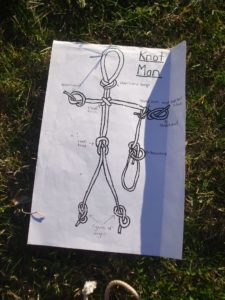Stress and Headaches

Stressors can come from all areas of life: general life stressors, interpersonal conflict and relationships, and/or social rejection, etc.. These stressors can result in negative moods while making acute and chronic pain worse. In fact, migraines and other chronic hypertension problems are correlated with negative childhood experiences and post-traumatic stress. The frequency of stressful events are positively correlated with tension headache frequency. This post will discuss how stress and chronic tension can lead to frequent headaches and give you first steps towards relief and prevention.
47% of the population qualify for a headache disorder diagnosis and at least 3% have chronic headaches (defined as occurring at least 15 days per month). One young adult woman was unaware of the chronic tension in her shoulders and neck but she was very aware of having frequent headaches. Throughout her time in therapy, she was able to be more aware of the tightness in these areas. Initially she was convinced that the stress came from the brain and therefore NEEDED to relieved through the brain. This can helpful. However, it can lead to an exhausting cycle of stressing about stress. During sessions, she was willing to practice specific body relaxation techniques with the therapist. She mentioned afterwards that the techniques not only helped with relieving the tension and provided energetic relief (energy was tied up in these tension areas) but recognized that her stress about other circumstances in her life decreased. This is a trap many people fall into: The source of the stress is often the perception/beliefs/thoughts/brain so we MUST start in those areas. What often happens, however, is that the body becomes activated and stores this sense of stress so that it becomes more difficult to think clearly and continues a cycle of perception–> stress–>body–>stress.
We know stress contributes to headaches AND we know suppressing negative emotions appears to augment pain. Due to this, we need interventions that directly reduce stress-induced physiological arousal and negative emotions. Becoming more attuned to our body’s tension and becoming more skilled at relieving these knots is going to help us to regulate AND it can help us discover the source of the tension in the first place. When you notice the tension in your body, first begin by deep breathing (check ‘Body’ post for specific breathing techniques’) and relieving the tension. This will help you regulate and ensure that your mind can be as clear as possible. Then begin exploring what event on the outside triggered the body to contract. It may sound a bit robotic and it will likely feel unnatural at first to look “outward-inward.” What therapists know, however, is that being overwhelmed and trying to explore what causes you to be overwhelmed leads to, guess what, being more overwhelmed.
One married woman had hypertension, back problems, chest pains, and feelings of nausea. She would talk about her anxiety, become more anxious about not understanding what she was anxious about and then continued spiraling until she felt incompetent and helpless. Once she began relieving her stress through her body she was soon able to realize that her relationships were causing her stress, her job caused her stress, and her extended family caused her stress. Before getting her body tension under control, she understandably felt that these problems were too big to try to solve. After all, she had these intense stressors while living in a body full of hypertension and chronic pain. Attending to the body first led to her very naturally breaking down the stressors on the outside to begin resolving the problems one by one.
In short, stress creates tension. This tension, left unattended, can causes physical problems such as heart conditions, inflammation, headaches, etc. We suggest to START by managing your arousal and relieving body tension. Relieving these tense areas can make you feel more energy and can relax your brain. After relieving these tense areas, move to your brain for understanding the stressors and triggers. *Remember, you can not simply attend and relieve tension one time. You will need to frequently attend to your body because it has likely become a master at storing stress.
